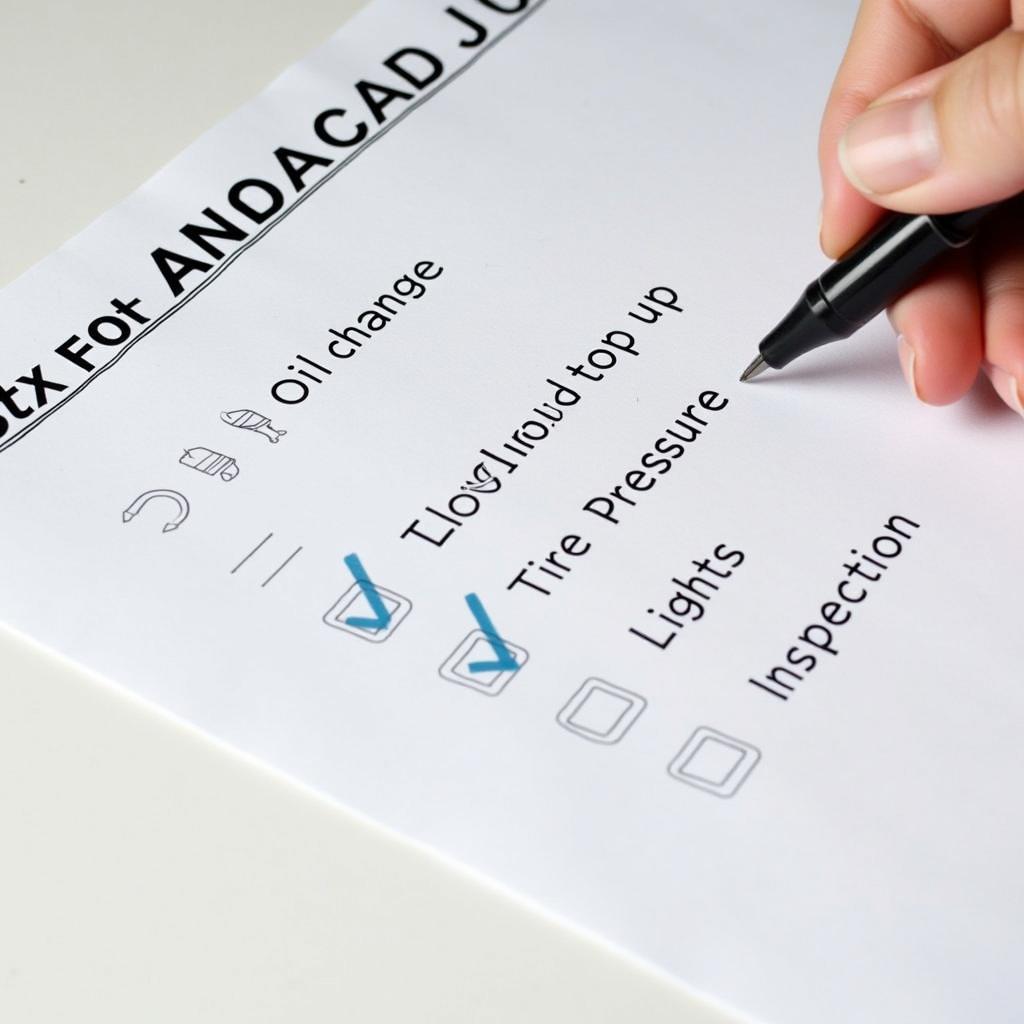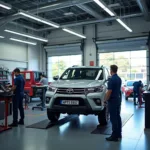Understanding what’s included in a car service is essential for every vehicle owner. Whether you’re preparing for a routine check-up or addressing a specific issue, knowing what to expect ensures you receive the necessary care for your car.
A standard car service goes beyond a simple oil change. It’s a comprehensive inspection and maintenance procedure designed to keep your car running smoothly and identify potential problems before they escalate. But the specifics of what’s included can vary depending on your car’s make and model, its age, mileage, and the specific service package you choose.
Basic Car Service: The Foundation of Vehicle Maintenance
A basic car service, often referred to as an interim service, is recommended every 6,000 miles or 6 months, whichever comes first. This service level focuses on essential checks and replacements to maintain your car’s basic functionality and safety:
-
Oil and Filter Change: This is the cornerstone of any car service. Fresh oil lubricates your engine’s moving parts, reducing friction and preventing wear and tear. Replacing the filter ensures the oil remains free from contaminants.
-
Fluid Level Checks: This includes inspecting and topping off essential fluids like coolant, brake fluid, power steering fluid, and windshield washer fluid.
-
Tire Pressure Check and Adjustment: Correct tire pressure is crucial for safety, fuel efficiency, and tire lifespan.
-
Visual Brake Inspection: Your mechanic will check the brake pads and discs for wear and tear and ensure the brake system functions correctly.
-
Lights Inspection: All exterior lights, including headlights, taillights, brake lights, and turn signals, are checked for proper operation.
Full Car Service: In-Depth Care for Your Vehicle
A full car service, often recommended annually or every 12,000 miles, is much more extensive than a basic service. It delves deeper into your car’s systems, ensuring optimal performance, identifying potential issues, and addressing them proactively:
-
Everything in a Basic Service, Plus: A full service encompasses all the checks and replacements of a basic service.
-
Air Filter Replacement: A clean air filter ensures the engine receives a sufficient flow of clean air for optimal combustion.
-
Spark Plug Check/Replacement: Spark plugs ignite the air-fuel mixture in the engine. Worn-out spark plugs can lead to reduced fuel efficiency and engine performance.
-
Battery Test: Your battery’s health is crucial for starting your car and powering its electrical components.
-
Steering and Suspension Check: This inspection examines the components responsible for your car’s handling and ride comfort, such as ball joints, tie rod ends, and shock absorbers.
-
Exhaust System Inspection: Your mechanic will check the exhaust system for leaks, damage, and proper operation, ensuring it effectively directs exhaust gases away from the vehicle.
Major Car Service: Comprehensive Care for High-Mileage Vehicles
For vehicles with significant mileage, typically over 60,000 miles, a major car service is recommended. This service level addresses wear and tear on key components and anticipates potential issues associated with aging vehicles:
-
All Elements of a Full Service, Plus: A major car service encompasses everything included in a full service.
-
Timing Belt/Chain Inspection/Replacement: The timing belt or chain is a critical component that synchronizes engine timing.
-
Coolant System Flush: This involves flushing out the old coolant and replacing it with fresh coolant to prevent corrosion and overheating.
-
Fuel System Inspection: Your mechanic will check for leaks, clogs, and proper operation of fuel injectors, fuel lines, and the fuel pump.
-
Transmission Fluid Check/Replacement (Automatic Transmission): Automatic transmission fluid lubricates and cools the transmission.
-
Differential Fluid Check/Replacement: Differential fluid lubricates the gears in the differential, which allows the wheels to rotate at different speeds while cornering.
Beyond the Basics: Additional Services
In addition to the core services outlined above, your car may require additional maintenance or repairs depending on its specific needs:
-
Brake Pad/Rotor Replacement: Worn brake pads and rotors compromise braking efficiency and safety and should be replaced promptly.
-
Tire Rotation and Balancing: Rotating your tires ensures even wear and tear, extending their lifespan. Balancing ensures a smooth and vibration-free ride.
-
Wheel Alignment: Proper wheel alignment ensures your car tracks straight and maximizes tire life.
-
Air Conditioning Service: This service ensures your AC system functions optimally, providing cool air during hot weather.
-
Other Repairs: This can include addressing any issues identified during the service inspection, such as faulty sensors, worn belts, or damaged components.
Understanding Your Car’s Needs
“Every car has a unique service history and individual needs,” says John Smith, Senior Automotive Technician at XYZ Auto. “Consulting your car’s owner’s manual and discussing your car’s specific needs with a trusted mechanic will help determine the appropriate service schedule and ensure your vehicle receives the care it deserves.”
Conclusion
Regular car servicing is an investment in your vehicle’s longevity, safety, and performance. By understanding what’s included in different service levels, you can make informed decisions about your car’s maintenance and keep it running smoothly for miles to come.


